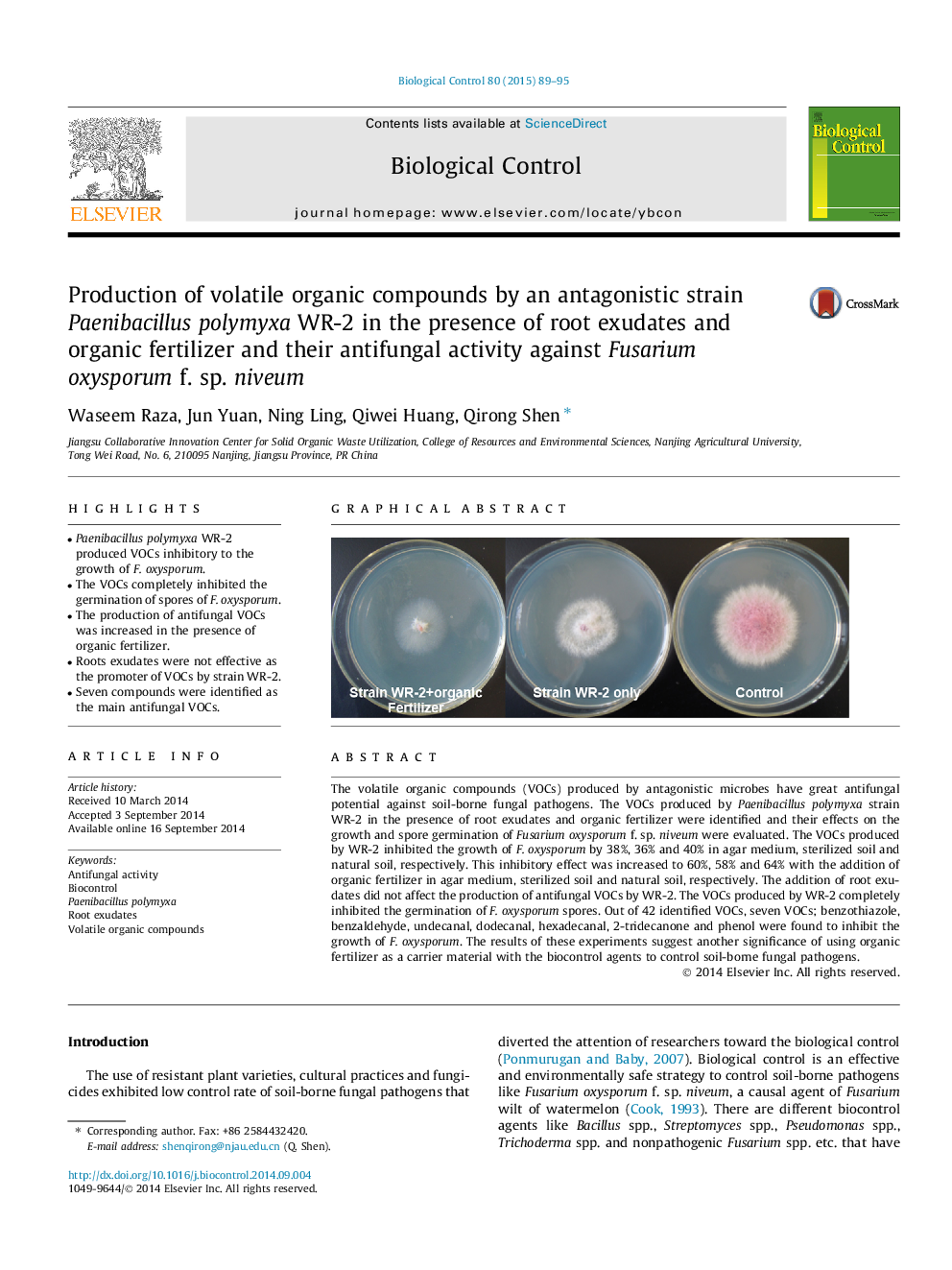| Article ID | Journal | Published Year | Pages | File Type |
|---|---|---|---|---|
| 6372577 | Biological Control | 2015 | 7 Pages |
â¢Paenibacillus polymyxa WR-2 produced VOCs inhibitory to the growth of F. oxysporum.â¢The VOCs completely inhibited the germination of spores of F. oxysporum.â¢The production of antifungal VOCs was increased in the presence of organic fertilizer.â¢Roots exudates were not effective as the promoter of VOCs by strain WR-2.â¢Seven compounds were identified as the main antifungal VOCs.
The volatile organic compounds (VOCs) produced by antagonistic microbes have great antifungal potential against soil-borne fungal pathogens. The VOCs produced by Paenibacillus polymyxa strain WR-2 in the presence of root exudates and organic fertilizer were identified and their effects on the growth and spore germination of Fusarium oxysporum f. sp. niveum were evaluated. The VOCs produced by WR-2 inhibited the growth of F. oxysporum by 38%, 36% and 40% in agar medium, sterilized soil and natural soil, respectively. This inhibitory effect was increased to 60%, 58% and 64% with the addition of organic fertilizer in agar medium, sterilized soil and natural soil, respectively. The addition of root exudates did not affect the production of antifungal VOCs by WR-2. The VOCs produced by WR-2 completely inhibited the germination of F. oxysporum spores. Out of 42 identified VOCs, seven VOCs; benzothiazole, benzaldehyde, undecanal, dodecanal, hexadecanal, 2-tridecanone and phenol were found to inhibit the growth of F. oxysporum. The results of these experiments suggest another significance of using organic fertilizer as a carrier material with the biocontrol agents to control soil-borne fungal pathogens.
Graphical abstractDownload full-size image
